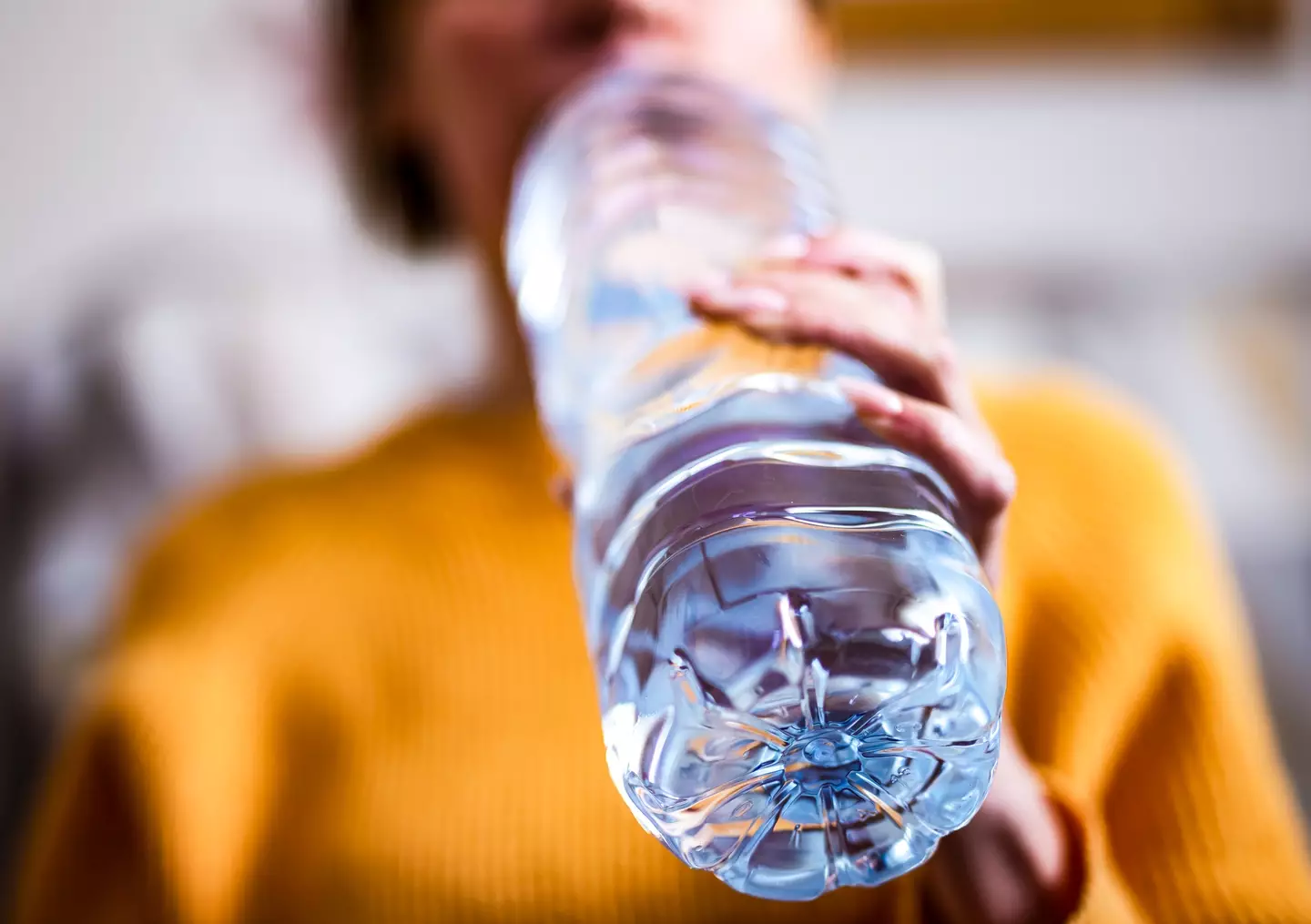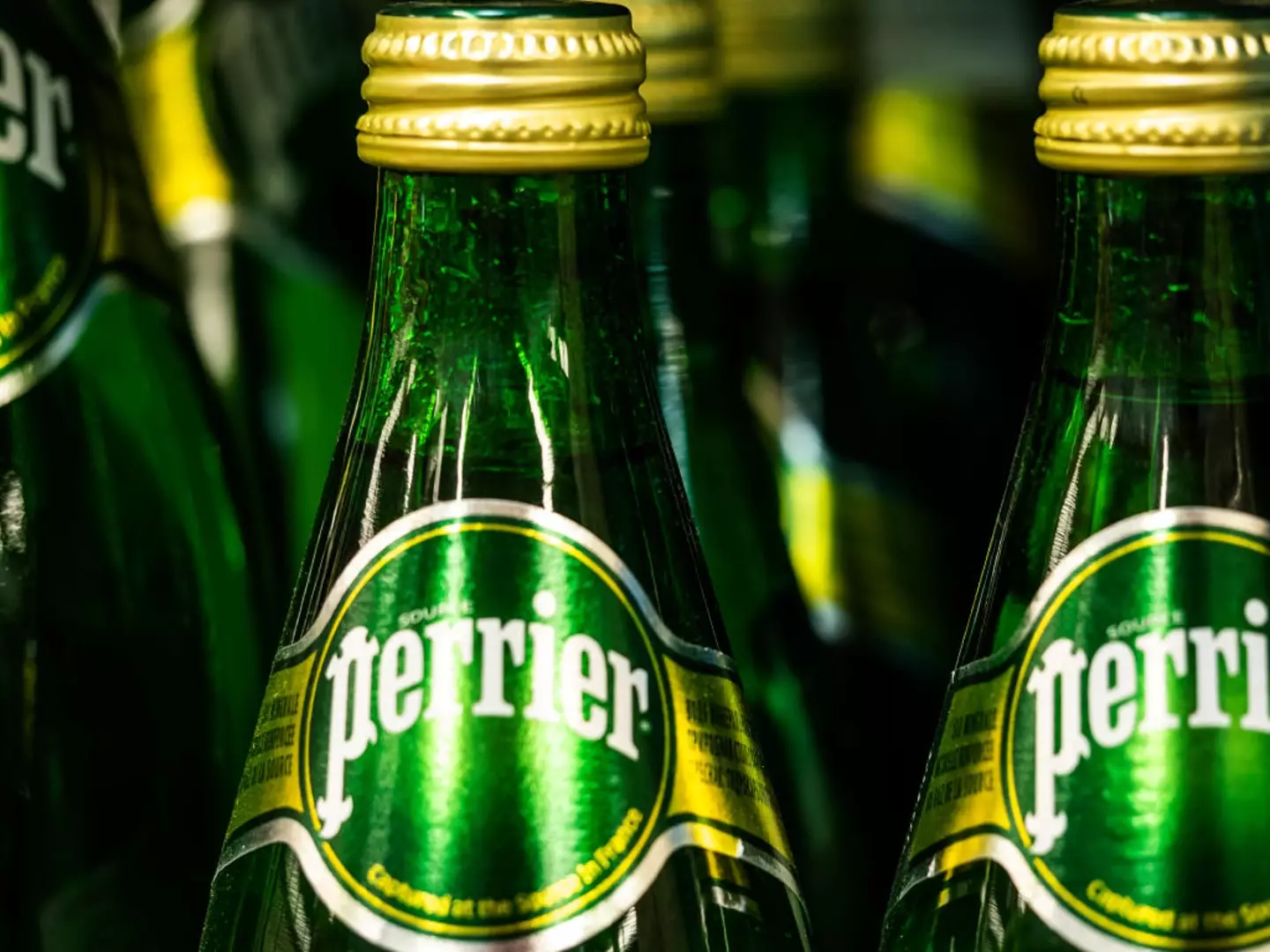
Water is essential for our health, and there’s a good chance you aren’t getting enough of it.
The NHS recommends drinking between two and two-and-a-half litres per day, although you may need more if you’re exercising, if it’s a warm day, or if you’re otherwise getting sweaty.
To maximise the benefits, many people opt for mineral water sourced from underground. It’s rich in dissolved minerals such as magnesium, calcium and potassium, and these electrolytes contribute to solid metabolic function and general health.

Advert
In order to qualify as natural mineral water, it must be bottled at source, have a consistent concentration of minerals, be free from pollutants and untouched by chemical treatments or disinfection.
If you’re a mineral water fan, or you’ve fancied splashing out on some fancy H2O, you might have opted for premium brand Perrier, owned by Nestlé.
Unfortunately, it seems that Nestlé hasn’t been playing fair when it comes to its bottling and labelling practices, with the credentials of its mineral water thrown into doubt by an inquiry into it and the French government.
According to the New York Times: “French regulators and independent consumer watchdogs have accused Nestlé Waters, Perrier’s French parent company, of using filters and ultraviolet sterilizers for years to treat the water it bottles from wells the south of France.
“The methods ran afoul of French and E.U. regulations, they said, and altered the water to the point that it could no longer be labeled ‘natural’.”
In May 2025, officials in Gard, southern France, have ordered Nestlé to remove its filtration and sterilisation apparatus from its Perrier bottling sites while it’s decided whether the brand needs to have its labelling changed to reflect the fact it hasn’t qualified as ‘natural’ mineral water.
It seems these measures were taken by Perrier in response to a wider problem: pure underground water sources are becoming rarer.
“This is part of a longer trend of growing threats to groundwater,” said Peter Gleick, co-founder of the Pacific Institute in California. “It’s becoming harder and harder to find waters safe from contamination.”
In September 2024, Le Monde and Radio France published an investigation into Nestlé’s filtering and sterilisation practices. The company has agreed to pay a €2 million (£1.68 million) fine to settle a lawsuit over the matter.

The French Senate then published a report in May 2025 that accused the French government of caving to lobbying from Nestlé to allow the continued sale of Perrier with a ‘natural’ label and claimed Macron’s office had known ‘that Nestlé had been cheating for years’.
“This scandal is a sort of textbook case of regulatory capture and state-industry collusion,” said Alexandre Ouizille, the French senator in charge of the investigation.
According to the New York Times, Nestlé hasn’t admitted wrongdoing but has pointed to the aforementioned water purity challenges facing the bottled water industry whilst calling for ‘clarity and consistency’ in regulations.
